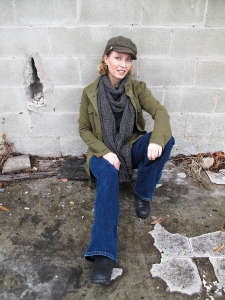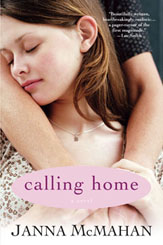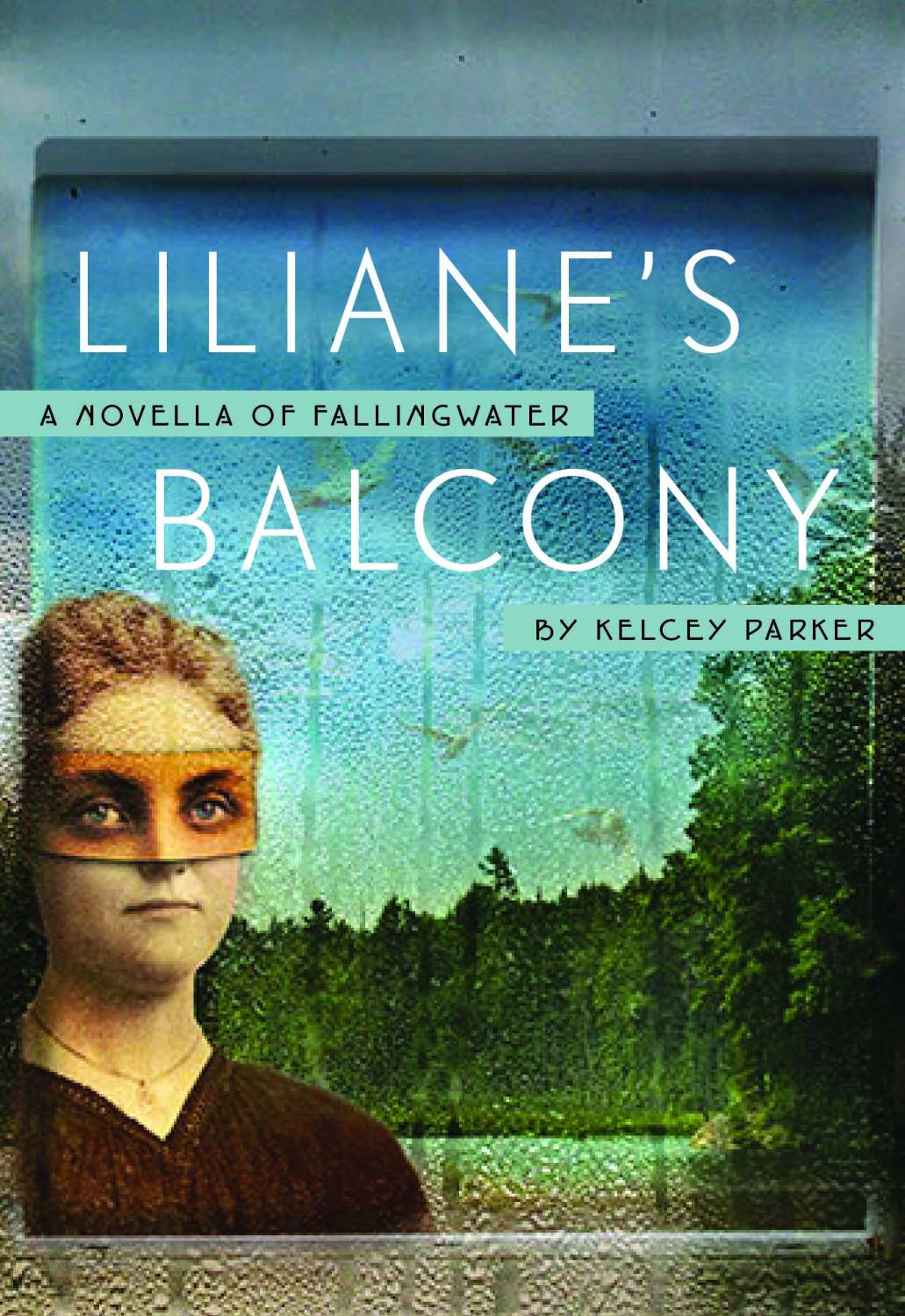Writing fiction—much less, pursuing an artist’s life—
was not part of the culture in which I was raised….
You didn’t make it if it wasn’t useful, if wouldn’t be for the greater good.
We had canning and quilting. And no one called these things “art.”

Patricia Grace King grew up in North Carolina and spent years in Spain and Guatemala. She holds an MFA from Warren Wilson College and a Ph.D. in English from Emory University. Her work has been nominated for a Pushcart Prize and has appeared in Narrative, Nimrod, and elsewhere. Her chapbooks, The Death of Carrie Bradshaw and Rubia, won the Kore Press Short Fiction and the Jeanne Leiby Memorial contests, respectively. She is the recipient of a fiction fellowship from the Vermont Studio Center and is the 2013-2014 Carol Houck Smith Fellow at the Wisconsin Institute for Creative Writing. She lives in the Printers Row neighborhood of Chicago with her husband. Patricia is at work on Gringos in Paradise, a collection of linked stories and a novella set in wartime Guatemala.
Website: http://www.patriciagraceking.com/
 Read more by and about Patricia:
Read more by and about Patricia:
1. Why did you want to become a writer?
I wanted to be a writer since before I can actually remember—before I could technically write. I loved stories: having them read to me, making them up. In my pre-literate years, I made dozens, maybe hundreds, of “books”: stories I illustrated, stapled together, and dictated to my mother, who transcribed them for me.
Nine was a pivotal year, though. I found Little Women and went sort of nuts. I read it nine times that year. I even read Alcott’s obscure stuff, like Under the Lilacs and an Old-fashioned Girl. I wrote my own novel, plagiarizing Little Women. (I wrote another, plagiarizing National Velvet, two years later.) Nine was also the age when Anne Frank got me started keeping a journal—I named mine “Ellen,” the way Anne called hers “Kitty”—and filled up more than forty of those lined “Record” books they used to sell at Eckerd Drugs.
The film editor Walter Murch once said, “Your chances for happiness are much increased if you wind up doing something that reflects what you loved most when you were between nine and eleven.” I think he’s right. I think you can call my pre-adolescent obsession with stories “wanting to become a writer.”
But in another sense I had no notion at all that there were such people as writers—that being a writer was an actual career or vocation.
Writing fiction—much less, pursuing an artist’s life—was not part of the culture in which I was raised. I grew up Mennonite, the granddaughter of Mennonite preachers on both sides of the family. Arbeite und Hoffe, work and hope, is the traditional Mennonite motto. It might sound like a fine motto for a writer too, but in the Mennonite context work means specifically, Work the land. And hope? Hope your soul’s saved.

Mennonite Quilting Circle;
Courtesy of artnet.com, article by Wendell Garrett,Garret’s Attic
Such art as there was, for the more conservative Eastern Seaboard Mennonites among whom I was raised, was functional only. You didn’t make it if it wasn’t useful, if wouldn’t be for the greater good. We had canning and quilting. And no one called these things “art.”
I didn’t get it that writing fiction was something people did anymore. I didn’t attach it to any activity going on out in the world beyond me. It was just this secret personal thing that I did. Not so secret, because I wrote in the middle of my large, active family, but secret in that only I knew what I was up to in those pages in front of me. In our old home movies, there’ll be this long table of my relatives talking, and I’m the one at the end with my head down, lost in my journal.
Maybe that’s the best reason of all to become a writer. Because you can’t not write. Because it’s this thing you just do—all the time, in the middle of the rest of your life, whether or not anyone else pays attention. Because you can’t help it, and there’s nothing in the world you’d rather do.
 2. How did you go about becoming a writer?
2. How did you go about becoming a writer?
The short answer is: It took a life crisis.
The long answer is: I didn’t know what to do with my love of stories except study the stories other people had written. When I started high school, I’d stopped writing fiction. I’d be an English professor, I thought. But I was never very good at it. I know this because all through grad school, I kept wanting to do other things. I’d run off to Guatemala: to work as a translator for medical brigades, to accompany refugees and other victims of the civil war with the human rights organization Witness for Peace. A friend and I traveled around North America for a year with an art project, “100,000 Faces,” that we made during the Persian Gulf War.
I was never driven to do scholarship. When I began dating my husband, Dave Janzen, who’s a Hebrew Bible scholar, we both had tenure-track teaching jobs; in the summer we’d go do our research. I’d watch Dave at his work, and he was so into it—in a way I never was—I’d be awed. Knowing Dave, who is a true scholar, helped me to see I’m not one.
I still did not understand that I was—that I am—a writer. It took a new set of experiences in Guatemala, where Dave and I worked shortly after we married. Those were the two hardest years of my life, and somewhere in the middle I started asking myself: What do I really hope to accomplish in this life I’ve been given? What would I most regret not having done, if someone told me I’d die tomorrow?
It was writing—writing stories. Writing as I’d done it as a child.
 Our last year in Guatemala, I started writing fiction again. I haven’t stopped since. When we returned to the States in 2005, I took a half-time teaching job and used all my spare time to learn how to write. Fiction writing was a profession, I saw, and I wanted to become part of it. But it took training. It takes training: a training as long and arduous as my Ph.D. work. I read books on fiction writing (James Wood’s How Fiction Works and Francine Prose’s Reading Like a Writer were two of the best). I read Poets & Writers. I joined a local writers’ group and went to my first workshop, at the Iowa Summer Festival, at age 39.
Our last year in Guatemala, I started writing fiction again. I haven’t stopped since. When we returned to the States in 2005, I took a half-time teaching job and used all my spare time to learn how to write. Fiction writing was a profession, I saw, and I wanted to become part of it. But it took training. It takes training: a training as long and arduous as my Ph.D. work. I read books on fiction writing (James Wood’s How Fiction Works and Francine Prose’s Reading Like a Writer were two of the best). I read Poets & Writers. I joined a local writers’ group and went to my first workshop, at the Iowa Summer Festival, at age 39.
Mainly, though, I just wrote. Summers and other days off, I wrote for six to eight hours a day. I’d denied the desire so long, I was starved for this exact work. I wrote and I wrote and ended up throwing out everything from those first years, but it was all part of the training. I sent my work out eventually. A few of my stories found homes. When I’d gotten as far as I could on my own, I joined the MFA program at Warren Wilson College, from which I’ve just graduated.
3. Who helped you along the way, and how?
The person who has helped me most is my husband, Dave. My teaching half-time for eight years has been crucial to my development as a writer, but I could not have done this—I could not have afforded to live on that salary—without Dave’s serious financial investment and personal sacrifice. He also supported and helped me finance my recent MFA studies.
Dave believed in me as a writer from the moment I began trying to be one—long before there was any concrete evidence that I could make it work. He values good literature almost as much as I do and sees it as a worthwhile pursuit, to a degree no one else in my personal life ever has.
Maybe what it comes down to is this: It’s incredibly hard to be a writer—to be an artist of any stripe, I suspect—without significant financial and emotional backing. And Dave Janzen has been both for me.
4. Can you tell me about a writer or artist whose biography inspires you?
I no longer follow up on the bios of writers I like. It’s another change from being a Ph.D. in English—where reading was so much about context—to being immersed in creative writing, where it’s all about the story and how it works.
I’m almost afraid now to know too much about the writer herself. I don’t want it to get in the way of how I experience her story. I’d rather read the story for the story itself.
 However, because of Malcolm Gladwell’s essay, “Late Bloomers,” in the October 20, 2008 New Yorker, I am somewhat aware of Ben Fountain’s biography, and I admire it. I probably wouldn’t admire it as much if I didn’t also just downright love Fountain’s first book, the short story collection Brief Encounters with Che Guevara. It is on my all-time Top Ten Books list (right up there with Little Women, for obvious sentimental reasons). Fountain does in those stories what I try to do in my own. He wakes you up to an often-neglected part of the world and then just immerses you in it: all the ethical and cultural and political complexity of the place. And Fountain’s a kickass story teller. I resonate with his biography in that he gave up a seemingly much more viable career to try to become, in midlife, a fiction writer. And I love his commitment to knowing Haiti so well that he’s been there at least thirty times! Finally, I love the tribute that essay pays Sharon Fountain; Gladwell rightly calls her Ben Fountain’s patron.
However, because of Malcolm Gladwell’s essay, “Late Bloomers,” in the October 20, 2008 New Yorker, I am somewhat aware of Ben Fountain’s biography, and I admire it. I probably wouldn’t admire it as much if I didn’t also just downright love Fountain’s first book, the short story collection Brief Encounters with Che Guevara. It is on my all-time Top Ten Books list (right up there with Little Women, for obvious sentimental reasons). Fountain does in those stories what I try to do in my own. He wakes you up to an often-neglected part of the world and then just immerses you in it: all the ethical and cultural and political complexity of the place. And Fountain’s a kickass story teller. I resonate with his biography in that he gave up a seemingly much more viable career to try to become, in midlife, a fiction writer. And I love his commitment to knowing Haiti so well that he’s been there at least thirty times! Finally, I love the tribute that essay pays Sharon Fountain; Gladwell rightly calls her Ben Fountain’s patron.
I’ve also been inspired by the life (as well as the poetry) of Muriel Rukeyser. My long-ago dissertation was on American women who witnessed the Spanish Civil War and wrote about it (talk about a “niche” dissertation!), and Rukeyser was my favorite of them. I admire her chutzpah and her fabulous cheekbones. I’m also moved by her lifelong commitment to social justice and the way that commitment interacted with and shaped her writing. Rukeyser didn’t just write about social justice problems—she went to the places where people were living them and literally bore witness to them. Her poetry became a second, longer-living form of testimony.

Image from albavolunteer.org; click for link
5. What would you say in a short letter to an aspiring writer?
The first thing I would say is: Don’t think of anyone else—NO one else: not your mother, not your teacher, not your writing group or your agent or editor or future audience: NO one—while you are writing a story. Stay inside the dream world that is your story. Don’t let the outside intrude.
Think of these other people only after you’ve written the story and revised it and revised it again: only after you’ve pushed the piece as far as you can and are ready to send it out to the world.
Always have something to write on (and with) within your arm’s reach. Sometimes the best writing happens when you’re not actually at the desk or computer. Don’t lose those ideas that come to you when you’re falling asleep, waking up, taking a walk, or riding a train. (A train, it turns out, is a very good place to write.)
That said, do sit down at the desk every day. Do it for a good chunk of time. Don’t be afraid if you don’t immediately know what to write. Even moving stuff around on the page is part of the writing and can help trigger ideas. Or open a blank document and do what I charmingly call a “mental vomit”—write without stopping to edit yourself or even trying to type properly. The thing is to get some ideas on the page. Later on you can play with them, pretty them up, see if they work in your story.
Find or get some people around you who understand how important writing is and who are 100% behind your pursuit of the writing life, even if they don’t do anything like it themselves.
Also: Know other writers. Get an MFA if you can. If you can’t, go to writers’ conferences, or join a workshop. Get out there; get connected. Read Poets & Writers. Be supportive of your fellow writers’ work too. Writers almost always work alone, but we are also a community, and we need each other.









 Read more by and about Désirée:
Read more by and about Désirée:

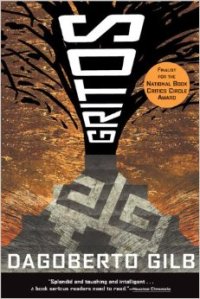

 Read more by and about Andrew:
Read more by and about Andrew: 2. How did you go about becoming a writer?
2. How did you go about becoming a writer? 3. Who helped you along the way, and how?
3. Who helped you along the way, and how?


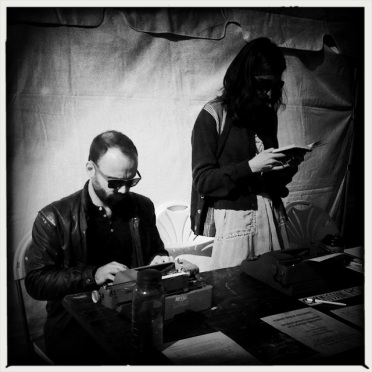
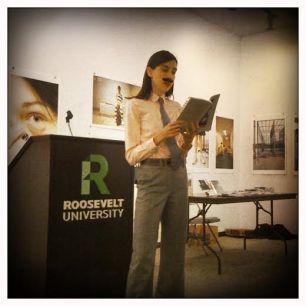
 4. Can you tell me about a writer or artist whose biography inspires you?
4. Can you tell me about a writer or artist whose biography inspires you?


















